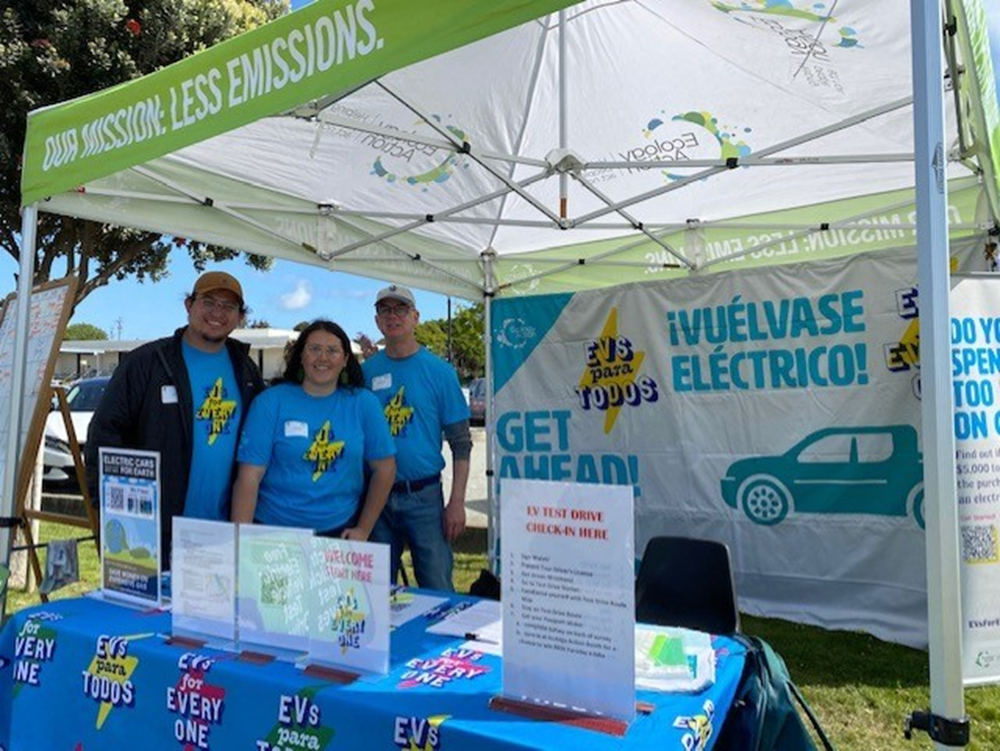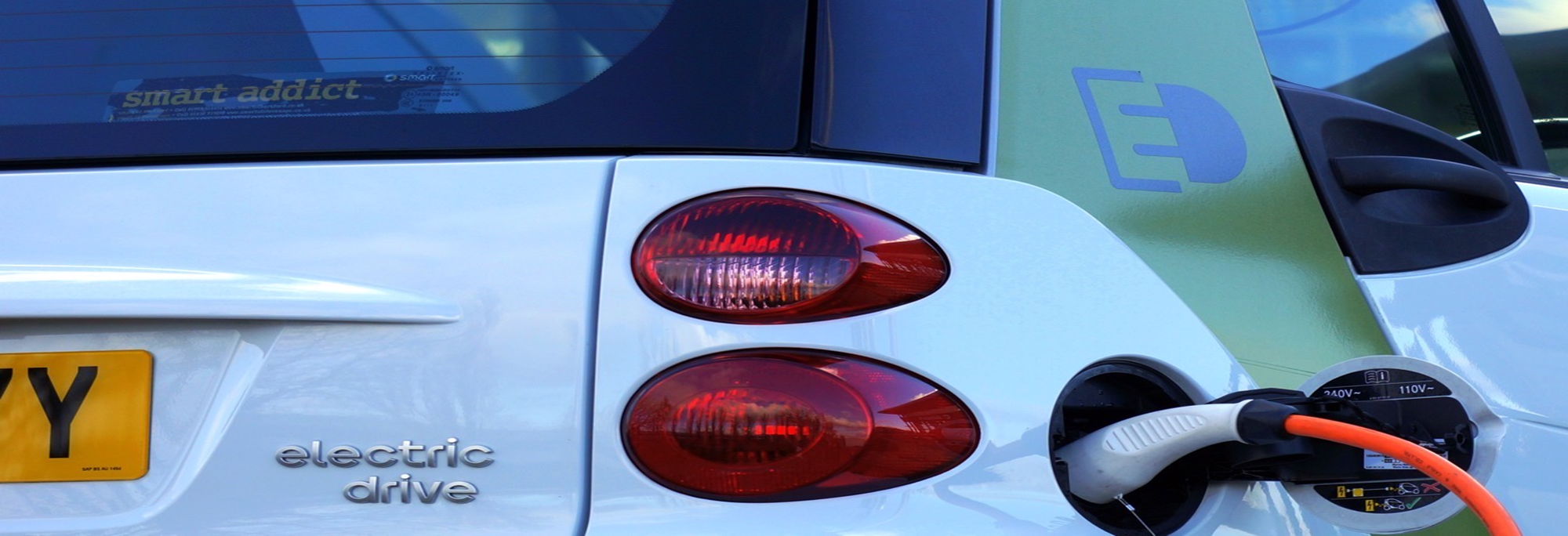California set an ambitious target to get five million zero-emission vehicles (ZEVs) on the road by 2030 and 250,000 electric vehicle charging stations by 2025 as directed in the Executive Order (E.O.) B-48-18). Further, by 2035, all new cars and passenger trucks sold in California must be ZEVs. These actions are essential to meeting California’s air quality and climate change targets. The transportation sector alone contributes nearly 35% of statewide greenhouse gas (GHG) emissions and local transportation contributes over half (50%) of all emissions.
Massively scaling EV adoption and shared mobility solutions can help us reach that goal while making communities healthier, creating jobs, and increasing equitable access to sustainable transportation and its benefits along the way. At Ecology Action, we have long-viewed EVs as a key solution an individual can take to reduce their carbon footprint. Since 2009, we have been instrumental in advancing EV education and outreach. With historic funding opportunities from foundations, corporations, and government, the time is now to advance equity and accelerate the electrification of our transportation sector as a key climate solution.
Our approach pairs EV education, outreach, and assistance with the deployment of EV infrastructure in under-resourced communities to ensure EVs and EV charging are available in every community. Collectively, these actions will have a meaningful impact on mitigating the climate crisis, which disproportionately affects the health and well-being of people living in disadvantaged communities.
“Our vision for Transportation Equity ensures that travel is safe, carbon-free, and improves mobility and accessibility fairly, enabling all people to participate and share in the benefits.” –Kirsten Liske, Vice President of Community Programs for Ecology Action

To spur transportation equity advances and reduce greenhouse gas emissions for a livable planet, we have developed a two-pronged approach to catalyze the electric vehicle transition for our region and within California. Our EVs para Todos/EVs for Everyone Program is the backbone of our education, outreach, and assistance program that is built on our decade of experience promoting electric vehicles as a climate solution. Thanks to an infusion of funding from public and private partners such as the General Motors Climate Equity Fund, we have secured $635,000 for bilingual Central Coast EV education and outreach work in 2022. With support from our funders, we are aiming to:
- Complete outreach and EV education to residents living in multi-family housing complexes for EV charging infrastructure installation projects
- Promote marketing campaigns to educate 50,000 community members about EVs
- Educate 2,000 people at 20 scheduled in-person and virtual events. Event attendees can test drive an EV, meet EV owners, and receive assistance from our EV team
- Recruit 500 residents into our 1:1 purchase guidance program which offers personalized assistance for income-qualified individuals through the entire EV buying process
- Assist 140 income-qualified residents participating in the 1:1 purchase guidance program resulting in 75 new EVs purchases by the end of 2022
“As we look ahead toward an all-electric future, we recognize how important it is for people to have a strong voice, and resources, to implement personal and community-level changes that address their specific needs. EVs para Todos is an excellent example of bringing everybody in on the journey to a more sustainable, equitable future powered by electric vehicles.” –Jessica James, senior manager, Climate Equity Fund, General Motors.

The second prong of our approach is to make charging accessible to everyone, no matter what type of housing they live in. To promote widescale adoption of electric vehicles, we need to make it convenient and efficient for all people to charge their electric vehicles. However, without affordable home charging, many residents remain very unlikely to convert to an EV. In fact, providing access to charging at home is the most influential way to encourage people to purchase EVs.
In California, a large proportion of the population lives in multi-family housing complexes due to the high cost of housing. In the Bay Area, more than half of all residents live in housing complexes, and fewer than 10% of those residents own EVs. We have developed and demonstrated a scalable low power (L1/L2) EV charging solution specific to apartments that will deploy electric vehicle chargers throughout Northern California over the next three years thanks to a $3M grant from the California Energy Commission. Our initiative will install 375 new EV charging ports at an estimated 76 sites, serving 3,800 resident dwellings where a minimum of 75% of EV infrastructure installations will be in Disadvantaged Communities (DACs), low-income census tracts, and communities most impacted by air pollution (AB617 communities) in the Central Valley, Central Coast, and Bay Area counties.
Our unique approach, built on a decade of experience, accelerates electric vehicle adoption by pairing education, outreach, and vehicle purchase assistance with EV charging for residents in under resourced communities living where new chargers are installed. Our two-pronged programmatic approach brings together powerful elements to allow for rapid electric vehicle adoption and scalability especially in the affordable multifamily sector, helping achieve our local and state goals for EV adoption, reducing the impacts of climate change, and directing critical resources to our neighbors who need them the most.




